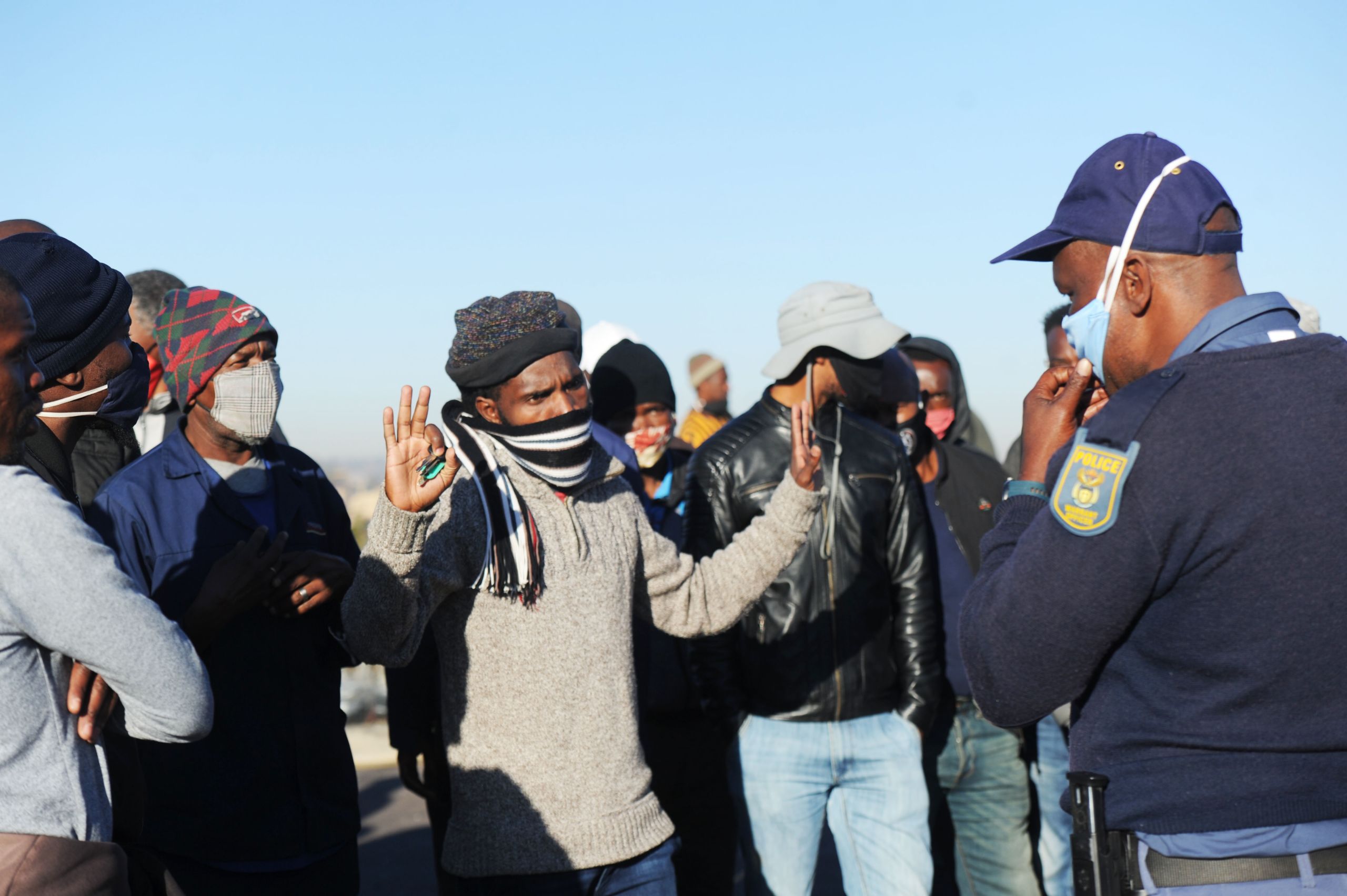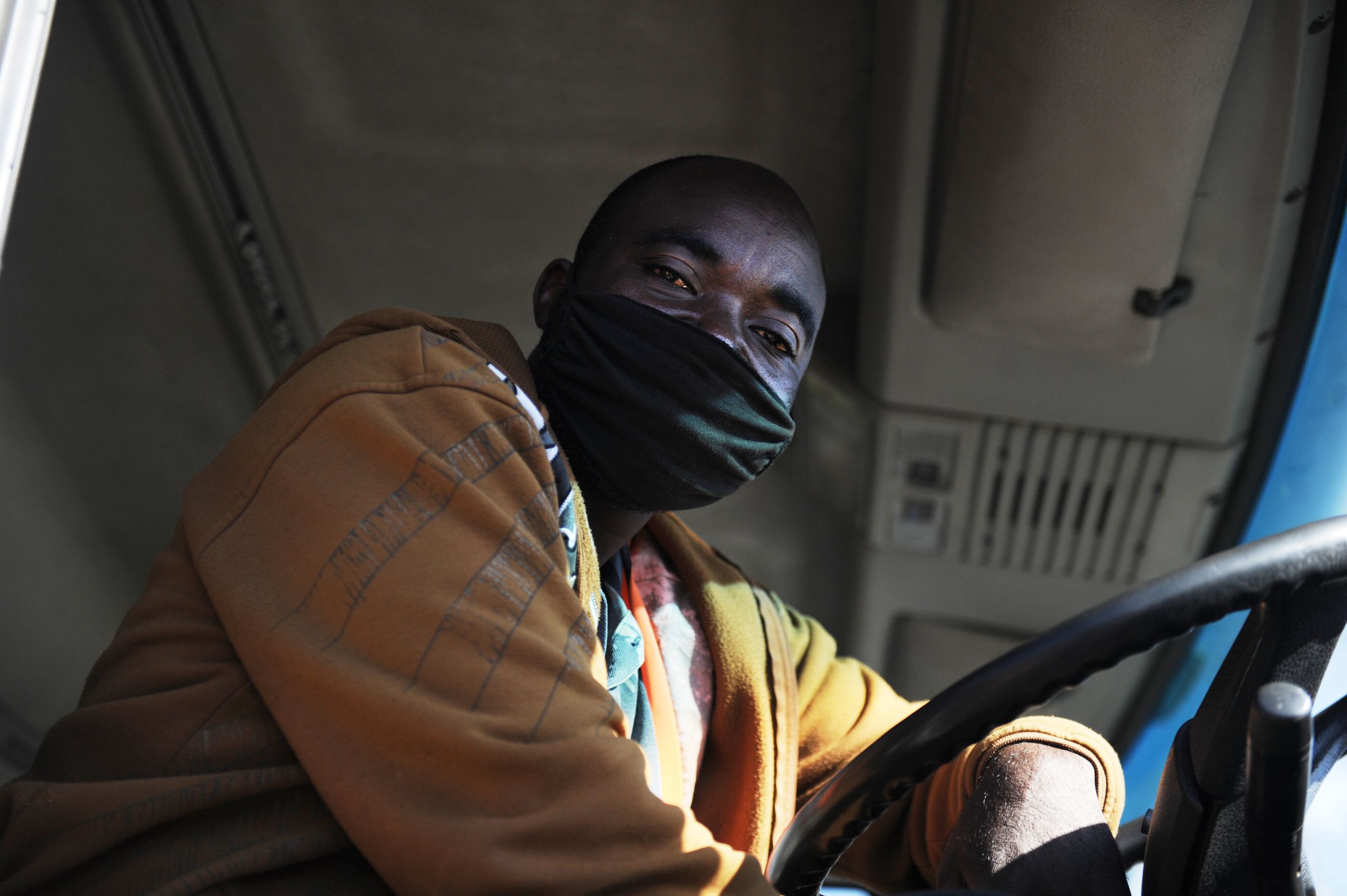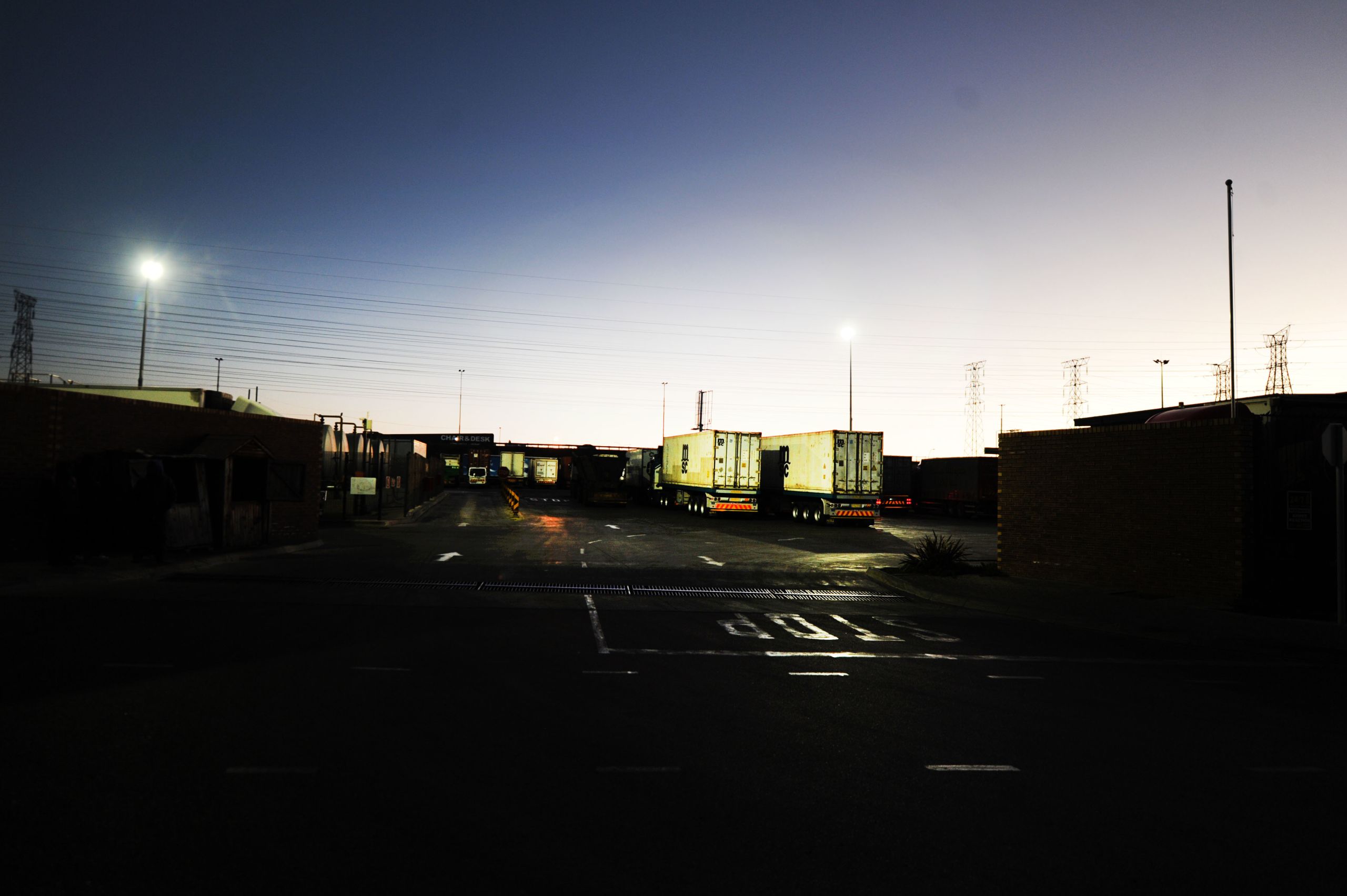‘If you kill me, you also kill 10 to 35 families in Zimbabwe’
While South African truck drivers vow to continue with a nationwide strike until trucking companies prioritise hiring them over foreign nationals, foreign truck drivers are “begging South Africans to feel pity for us”.

Tendai Munyai* is a Zimbabwean who has been driving trucks in South Africa for the past seven years. He said he would love to go back home and spend more time with his wife and four children, but the country’s economic situation will not allow him to do this.
“Imagine waking up in the morning and getting a call that your children haven’t eaten anything for four days. For a man, that will force you out of your house to try to do something just so you can put food on the table.
“Imagine waking up in the morning and getting a call that your children haven’t eaten anything for four days. For a man, that will force you out of your house to try to do something just so you can put food on the table.
"Some families spend a year without knowing how bread tastes, because everything is so expensive.” Munyai’s biggest fear is getting killed while working in South Africa.“I saw on WhatsApp that the strike turned violent in other places.
Imagine waking up in the morning and getting a call that your children haven’t eaten anything for four days
We’re still here, hoping that they will allow us to go out with the trucks but, if the situation gets worse, we will have to hide in the trailers to protect ourselves,” he said.
Like most people, when it comes to his job, Munyai said “it’s not about me”.
“If you kill me, you also kill 10 to 35 families in Zimbabwe. You send food and money to your family and others come asking. We have to share.
"We’re no longer looking at what food can last long. Our focus is to eat today; tomorrow we’ll worry about what to eat tomorrow. That’s how it is in Zimbabwe,” he explained.
‘Where will we buy food?’
For Munyai, the strike not only threatens his job, but also unsettles his idea of belonging.
“We don’t have hope at the moment; it’s like we’re dead. We don’t know when and how things are going to be alright.
"Life is very bad. In South Africa they complain about us taking their jobs and in Zimbabwe we don’t have food.
“If you resist, you’re going to die. If you stay at home, your children are going to die of hunger. Where’s the answer?
“Imagine if they [the government] decided to close the borders to Zimbabwe. We won’t survive. Where will we buy food? We’re not here to make a profit.
"We just want our children to say thank you Daddy, today we ate something,” he said.

‘We need to share’
Unlike Munyai, Sydney Matope, a truck driver who’s also a Zimbabwean national, has put his future in the hands of government and trucking companies.
“What they [South African truck drivers] are doing is not all that bad; we all need to work and survive.
"But we also need to share. If they’ve got grievances and the demonstration is peaceful, then it’s fine because the authorities will know what’s going on.
"If they’re calling for us to be fired, then it’s up to the companies to make the final decision,” he said.However, the decision on what will happen to foreign truck drivers in South Africa needs to come sooner rather than later for Matope.
"He doesn’t have much time; his permit expires next year and “it depends on the situation” whether he extends it or not.“I’m here legally. I pay taxes and comply, but I don’t know if I should continue to stay,” he said. Like Munyai, Matope has a big family relying on his salary.
I’m wearing two pairs of trousers and sweaters so that I don’t feel too much pain in case they attack us. This is the little I can do to protect myself - Matope
“I have to support my family – that includes my mother and grandmother’s caretakers. I also have to pay the people who take care of the livestock.
“This government has let down the Southern African Development Community. Citizens have been generous to us, but now they feel that we’re overstaying our welcome. So, if they tell me to go, I will go.
"What else can I do? Life is challenging as a man; you have to face it,” he said. Matope, who’s been driving in South Africa for the past nine years, can’t shake off the fear of being attacked because of his nationality. “This is a job that demands a lot on its own. You are away from your family.
"My kids cry every time I call because I can only see them for a month every year.“A truck can break down on the road, in the middle of the night.
You have to know what to do, you have to know how to jack it up and fix it. If you decide to stay in the truck that’s not moving, people can come and rob you.
“It gets harder when you’re not from South Africa. Right now, I’m not supposed to be at City Deep. I should be transporting goods to Durban, but our controller told us that it’s no longer safe and we should stay here in the meantime.
“The atmosphere is tense. In the morning the South African truck drivers nearly overpowered security and attacked us.“I’m wearing two pairs of trousers and sweaters so that I don’t feel too much pain in case they attack us. This is the little I can do to protect myself,” he said.
*Not his real name

